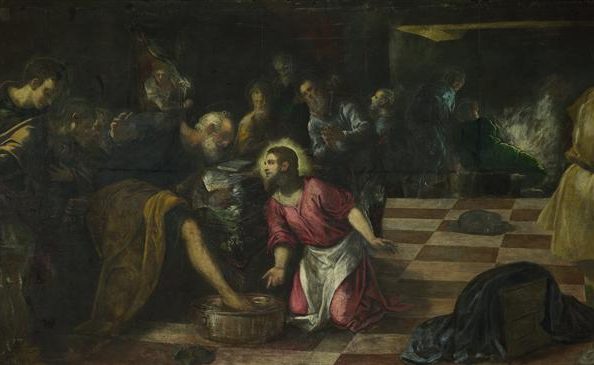In elementary school, children learn about endangered species, those animals that have become so uncommon that their ongoing existence as a species is at risk. Endangered animals need special protection and care in order to have an increased chance of survival, growth, and flourishing.
The idea of endangered species recently got me thinking about another domain of life, the virtues. I don’t know of any purely objective ways to measure whether certain virtues are at risk, but it seems to me that in this day and age graciousness may well be endangered or headed in that direction.
At the very least, I am convinced that the virtue of graciousness is desperately needed today. We live in an increasingly fractured and polarizing world where signs of graciousness can sometimes be hard to find. Between the talking heads on TV and the near incessant social media chatter, much of it snarky and mean-spirited, this has become, more and more, a sound-bite society in which the loudest voice gets the most attention.
Sometimes the problem is not just that the world around us tends to be ungracious, but that even in the church, graciousness can be lacking. Ironically, graciousness can be lacking among those who claim the title “Christian,” when graciousness is supposed to be at the very heart of who we are as God’s people.
One recent study revealed that graciousness is nowhere near the top of the list of qualities people outside the church associate with the church. What tops that list are things quite different than graciousness. Many people share their impressions of Christians with words like “hypocritical,” “insensitive,” and “judgmental”; that’s especially true in terms of what young adults think about the church. Whether these perceptions are accurate or not, they make it all the more difficult for us to reach people, especially young people.
The challenge for us in the church today is this: simply to be Christian, to be who we are, to live the love we profess. It’s possible for us to be people of deep faith and conviction who embrace those who believe or act differently rather than shunning or condemning them. We have an answer for a broken and hurting world: the power of God’s grace for us, in us, and through us.
The answer is not cheap grace, but costly grace—and yet that is the way to true life. God’s grace is not cheap for God, for it cost Jesus everything he had, even his own life, which he freely gave up for us all. God’s grace is not meant to be cheap for us either, but costly, costly and transformative. Jesus said, “If any want to become my followers, let them deny themselves and take up their cross daily and follow me. For those who want to save their life will lose it, and those who lose their life for my sake will find it” (Luke 9:23).
A Wesleyan accent on the Christian message could be what is especially needed today. Why? Because that approach offers a robust emphasis on God’s grace and what it produces in us, graciousness.
One of the most wonderful yet also confounding descriptions of a life of graciousness is found in Romans 12:
“Let love be genuine; hate what is evil, hold fast to what is good; love one another with mutual affection; outdo one another in showing honor. Do not lag in zeal, be ardent in spirit, serve the Lord. Rejoice in hope, be patient in suffering, persevere in prayer. Contribute to the needs of the saints; extend hospitality to strangers. Bless those who persecute you; bless and do not curse them. Rejoice with those who rejoice, weep with those who weep. Live in harmony with one another; do not be haughty, but associate with the lowly; do not claim to be wiser than you are. Do not repay anyone evil for evil, but take thought for what is noble in the sight of all. If it is possible, so far as it depends on you, live peaceably with all. Beloved, never avenge yourselves, but leave room for the wrath of God; for it is written, ‘Vengeance is mine, I will repay, says the Lord.’ No, ‘if your enemies are hungry, feed them; if they are thirsty, give them something to drink; for by doing this you will heap burning coals on their heads.’ Do not be overcome by evil, but overcome evil with good.” (Romans 12:9-21)
These references to love, to humble, faithful service, and to peaceful actions even toward our enemies indicate that the Christian calling is certainly a high one. Some might say that such a standard is impractical if not altogether unattainable. Yet I see it differently: in the mystery of grace, this life is the one that God has called us to live. Jesus reminds us that what is impossible for us, in and of ourselves, is possible with God.
It is remarkable to consider how much the cause of Christ could be advanced throughout our communities and the wider world by a renewed commitment within the church to discipleship according to the Bible, not according to our own whims and distortions, and emphasis on the heart-renewing power of Jesus Christ. The marks of the Christian life—profound marks of graciousness—are ones that, I believe, the world longs to see. Graciousness may at times seem like an endangered virtue, but our connection to the source of that virtue and all others makes graciousness, for us, the great privilege and responsibility to know and share in this hurting, hungry world.
